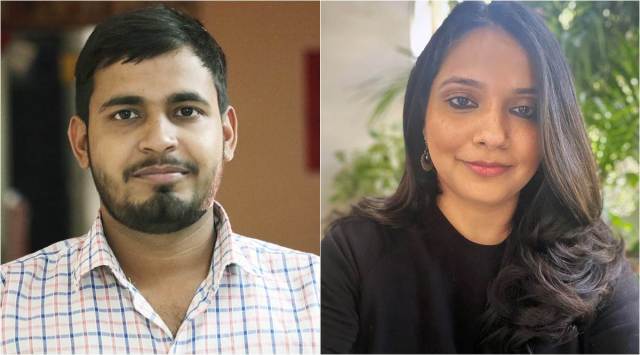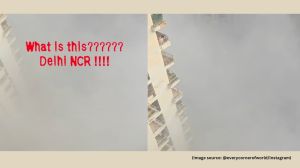RNG Awards: Perks of political power and voices from a silence
Dheeraj Mishra of The Wire is the winner of the Politics and Government category in digital media while Seemi Pasha of The Wire. In is the winner in broadcast media.
 Dheeraj Mishra, Seemi Pasha
Dheeraj Mishra, Seemi PashaSPENDING by legislators on their travel and voices from a community after a police crackdown — these were the subjects of two compelling stories that won the Ramnath Goenka Award in Government and Politics.
Dheeraj Mishra of The Wire is the winner of the Politics and Government category in digital media while Seemi Pasha of The Wire. In is the winner in broadcast media.
Using the Right to Information Act to get details, Mishra revealed the expenses of several members of parliamentary committees and bureaucrats ostensibly during study tours on hotels, food and travel.
The report showed that despite a CAG report flagging the MPs’ high expenses and guidelines that they must stay at government guest houses or hotels, the members stayed at highly priced hotels and incurred hefty expenditure on food and travel.
“I didn’t know where to start as there were thousands of files. I went through them but the information was insufficient. I then filed 30 to 35 RTIs in each ministry, visited each of their file rooms and collated data,” says Mishra.
The story had a noticeable impact as the Lok Sabha Secretariat issued instructions to sharply curtail expenditure incurred by all parliamentary committees on logistics, including travel and accommodation on their study tours.

Pasha’s 30-minute-long documentary provided a glimpse of life inside Jamia Nagar in the aftermath of the police crackdown on students of Jamia Millia Islamia (JMI) in December 2019.
It captured voices from a neighbourhood and minority community home to thousands of students and staffers, and highlighted their concerns. Locals claimed they had always been viewed with suspicion, not just by the police but also by residents of more affluent neighbourhoods. Teachers said they worried about the future of innocent children, the youth asked if they would be labelled as “terrorists” because they had studied in JMI and lived in Jamia Nagar while senior citizens shared stories of alienation and discrimination. The documentary highlighted the lack of civic amenities and poor infrastructure facilities in the area.
“Getting residents of Jamia Nagar to speak openly on camera was not an easy task. Not only were they scared of being punished for openly criticising the State, they were also suspicious of journalists after being misrepresented and criminalised by several TV news channels. I had to assure them that their statements would not be quoted out of context and that their concerns would be fairly represented,” said Pasha.








